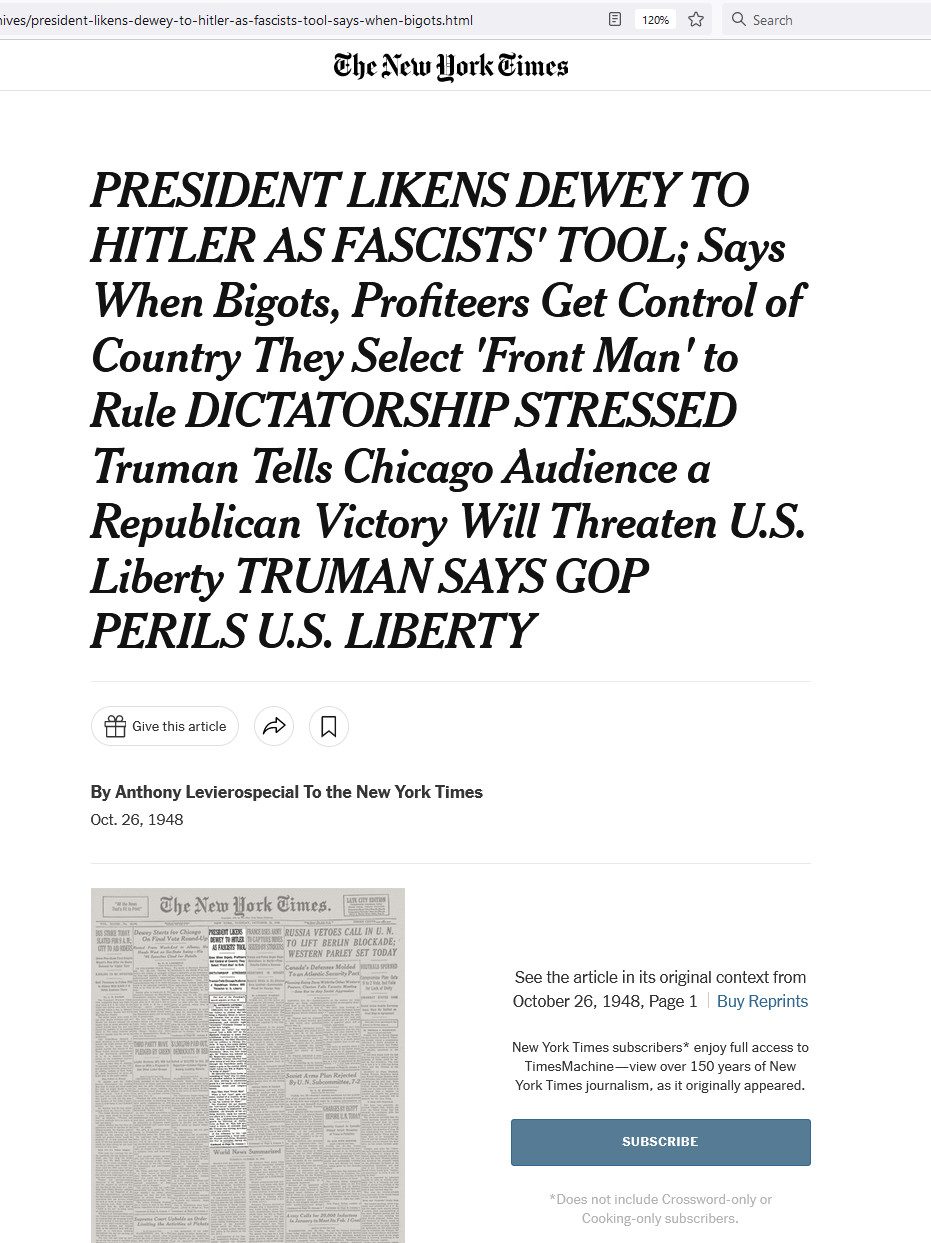JOSEPH CAMPBELL: Why Truman’s 1948 upset is no template for the 2024 U.S. presidential election, according to the expert who wrote the book on polling failure.
Harry S. Truman’s stunning, come-from-behind victory in the 1948 presidential election has encouraged frissons of optimism for long-shot candidates ever since. Walter Mondale invoked the 1948 election in his race against President Ronald Reagan in 1984, insisting the polls signaling his overwhelming defeat weren’t picking up the popular support flowing to his candidacy. Mondale lost in a 49-state landslide. In 1996, Bob Dole channeled Truman’s pugnacity of 1948, declaring, “I’m going to win whether you like it or not.” The closing hours of Dole’s race against President Bill Clinton included a campaign stop at Truman’s hometown in Independence, Missouri. Dole lost by 8.5 percentage points.
President Joe Biden’s uncertain campaign for reelection this year has invited comparisons to Truman’s come-from-behind victory in 1948. A recent assessment in Politico, for example, said the blueprint Truman followed in his aggressive and strenuous campaign in 1948 offers Biden a playbook for victory. Even the leading newspaper in France, Le Monde, has invoked the 1948 template as a way of understanding this year’s U.S. presidential election.
While broad and superficial similarities may be detected between 2024 and 1948, the two cases are in fact quite dissimilar, especially in the conventional wisdom that pre-election polls generate and reinforce.
* * * * * * *
In 2020, several prominent national polls, including those conducted for CNN and jointly for NBC News and the Wall Street Journal, anticipated Biden’s winning by 10 points or more. Biden carried the popular vote by 4.5 points in what, overall, was the poorest polling performance in a presidential election since 1980.
As of Apr. 4, the RealClearPolitics polling average showed Trump with less than a percentage point lead in a two-way race against Biden–scarcely a margin to inspire 1948-style overconfidence.
Another notable difference lies in the sense of vigor projected by the Democratic candidates. Truman was 64 years old in 1948 and pursued a grueling campaign of a kind that is difficult to imagine the 81-year-old Biden even remotely contemplating. Truman logged thousands of miles by train in an arduous, cross-country whistlestop campaign, or what biographer David McCullough called “a fast-rolling political roadshow.”
“I know I can take it,” Truman said of the rigors of the campaign, adding in jest: “I’m only afraid I’ll kill some of my staff.”
Meanwhile, Dewey ran an above-the-fray campaign, a model Trump would never embrace. Dewey, unlike Trump, sought to minimize controversy and avoided specific policy pronouncements, once telling an aide “When you’re leading, don’t talk.”
Biden doesn’t have the energy and the good health sufficient for a repeat of Truman’s last-minute whistlestop campaign, but the entire Democratic apparatus are dedicated to repeating one aspect of it:

